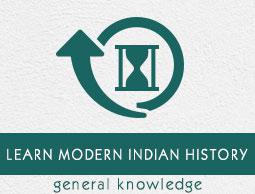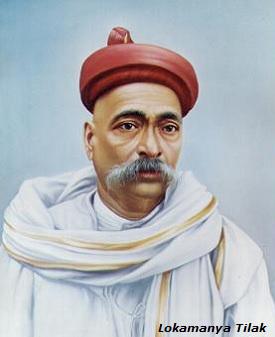The politics of the moderate nationalists were founded on the belief that British rule could be reformed from within. But the spread of knowledge regarding political and economic questions gradually undermined this belief.
The nationalist writers and agitators blamed British rule for the poverty of the people. Politically conscious Indians were convinced that the purpose of British rule was to exploit India economically, that is, to enrich England at the cost of India.
The nationalists realized that India could make little progress in the economic field unless British imperialism was replaced by a government controlled and run by the Indian people.
In 1898, a law was passed making it an offence to excite "feelings of disaffection" towards the foreign government.
In 1899, the number of Indian members in the Calcutta Corporation was reduced.
In 1904, the Indian Official Secrets Act was passed restricting the freedom of the press.
The Nathu brothers were deported in 1897 without trial; even the charges against them were not made public.
In 1897, Lokamanya Tilak and other newspaper editors were sentenced to long terms of imprisonment for arousing the people against the foreign government.
The moderate leader Gokhale complained that "the bureaucracy was growing frankly selfish and openly hostile to national aspirations."
The Indian Universities Act of 1904 was seen by the nationalists as an attempt to bring Indian universities under tighter official control and to check the growth of higher education.
Gradually, an increasing number of Indians were getting convinced that selfgovernment was essential for the sake of the economic, political, and cultural progress of the country and that political enslavement meant stunting the growth of the Indian people.
By the end of the 19th century, the Indian nationalists had grown in selfrespect and self-confidence. They had acquired faith in their capacity to govern themselves and in the future development of their country.
Tilak and Bipin Chandra Pal preached the message of self-respect and asked the nationalists to rely on the character and capacities of the Indian people.
The nationalists taught the people that the remedy to their sad condition lay in their own hands and that they should, therefore, become fearless and strong.
Swami Vivekananda, though not a political leader, again and again, drove home the message that “If there is a sin in the world it is weakness; avoid all weakness, weakness is sin, weakness is death… and here is the test of truth – anything that makes you weak physically, intellectually and spiritually, reject as poison, there is no life in it, it cannot be true.”
Swami Vivekananda wrote that “The only hope of India is from the masses. The upper classes are physically and morally dead.”
The educated Indians became the best propagators and followers of militant nationalism both because they were low-paid or unemployed and because they were educated in modern thought and politics and European and world history.
Tilak was born in 1856. From the day of his graduation from the Bombay University, he devoted his entire life to the service of the country.
From 1889, Tilak edited the Kesari and preached nationalism in its columns and taught people to become courageous, self-reliant, and selfless fighters in the cause of India's independence.
In 1893, Tilak started using the traditional religious Ganpati festival to propagate nationalist ideas through songs and speeches, and in 1895, he started the Shivaji festival to stimulate nationalism among young Maharashtrians by holding up the example of Shivaji for emulation.
During 1896-1897, Tilak initiated a ‘no-tax’ campaign in Maharashtra. He asked the famine-stricken peasants of Maharashtra to withhold payment of land revenue if their crops had failed.
Tilak set a real example of boldness and sacrifice when the authorities arrested him in 1897 on the charge of spreading hatred and disaffection against the government. He refused to apologize to the government and was sentenced to 18 months rigorous imprisonment.



